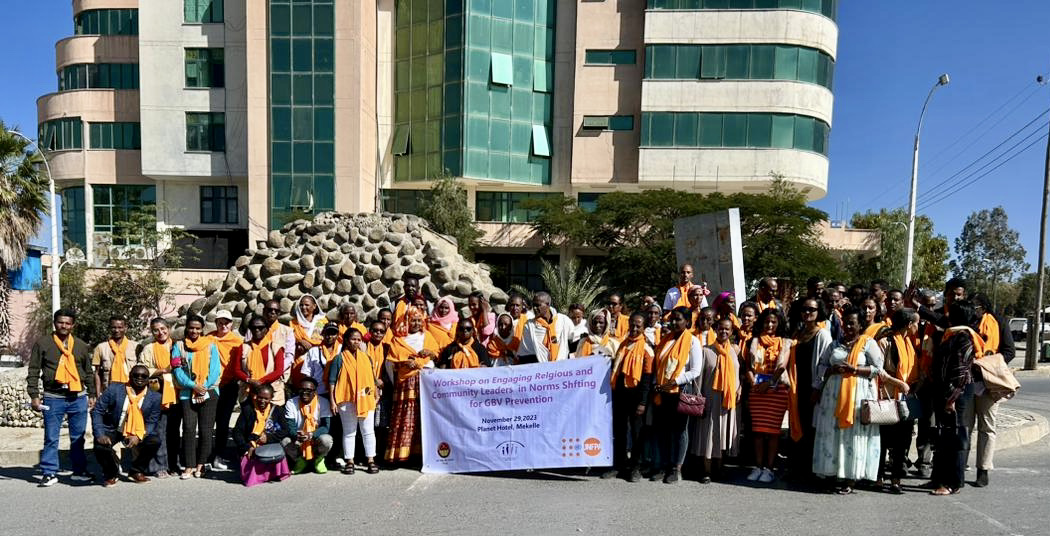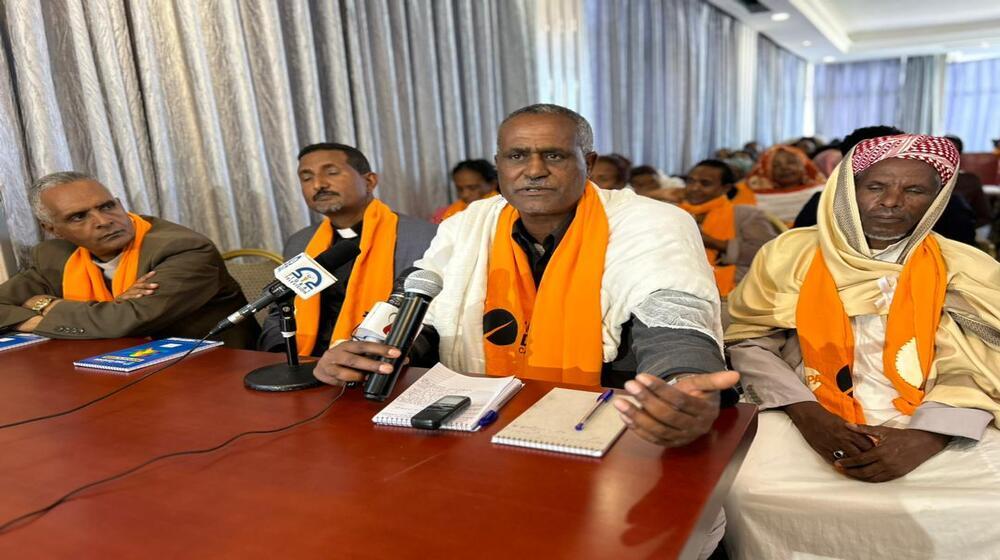Mekelle, Ethiopia - The United Nations Population Fund (UNFPA), in cooperation with Tigray’s Bureau of Women’s Affairs, hosted a roundtable discussion with over 50 religious and community leaders in the Tigray region. The event aimed to highlight the critical role these influential figures play in combating harmful cultural practices that perpetuate GBV.
The event was held as part of the ongoing 16 Days of Activism against Gender-Based Violence campaign. This global campaign, running from November 25 (International Day for the Elimination of Violence Against Women) to December 10 (Human Rights Day), aims to raise awareness and mobilize action to end violence against women and girls.
This year's theme, "UNITE! Invest to prevent violence against women and girls," underscores the need for collective action and investment in preventive measures. UNFPA is actively engaging community leaders and other partners to raise awareness on this critical issue.
Speaking at the roundtable, Ms. Joyce Paklaki, UNFPA’s Head of Tigray’s Sub-Office, emphasized the immense potential of religious and community leaders to address GBV. “As custodians of societal values and traditions, you lead positive and faith-based responses to address key societal issues such as GBV and harmful social norms and practices”.
Religious and community leaders voiced their commitment to tackling GBV. Father Teium Berhe, Archbishop of the Catholic Church in Mekelle, highlighted the importance of addressing gender norms within households and empowering women and girls as a long-term strategy to prevent GBV.
Mr. Aboy Teium shared the profound trauma he has witnessed while interacting with GBV survivors and urged everyone to contribute to ensuring they receive adequate medical and psychological care.
Similarly, Gospel Mihreateab Birhan, Secretariat for the Union of Evangelical Churches, indicated the need for religious leaders to clearly differentiate between harmful practices and genuine religious practices. He stressed that harmful practices should not be accorded the authority and legitimacy of religious institutions.
Partners working on GBV prevention and response were also part of the event to voice the main challenges to the recovery and reintegration of survivors in their communities. Ms. Abeba Hailesilassie, from the Women's Association of Tigray, highlighted the urgent need to support and protect survivors of conflict-related sexual violence from community isolation. She also appealed to religious and cultural leaders to play a crucial role in ensuring that survivors are treated with the respect and dignity they deserve.
Mobilizing religious and community leaders for the elimination of gender-based violence is just one of the key interventions of UNFPA to promote social and behavioural change and combat GBV. This roundtable is the first of three similar events planned for the Tigray region, with additional events to be held in Adigrat and Shire in the coming week.



